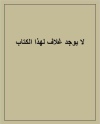Introduction
It is obvious that there is an increasing interest on the part of non-Moslems in Islam and in Islam’s role in the modern world. Moslems also are rethinking their relationship to their religion in hope to bringing forth fundamental, socio–economic reform.
Unfortunately, however, much of the non-Moslem interest in Islam is wrongly motivated, while many Moslem expectations are misconceived. For the non-Moslem, Islam is simply the faith of the few hundred million Moslems, some of whom are living in the oil - rich, strategically located Middle Eastern region. This is indeed a poor and questionable basis for interest in Islam since it implies and perpetuates subordination, exploitation and manipulation of Moslems and their land by the rich and developed nations of the world. In this view Islam is allocated importance primarily in terms of the interests of the materially advanced and rich notions of the world.
Again, Islam should not be studied and appreciated merely as an interesting phenomenon, or as a vague and bizarre ideology espoused by militant, reactionary and irrational revolution, whether that experienced in Iran, or as manifested in such fanatic, terrorist organisations as represented by the Moslem brothers. Neither of these movements is truly representative of Islam. They are in fact, distorted and confused expressions of the desire for socio-economic reform by means of an Islamic revival – a legitimate desire felt by the vast masses of Moslems all over the world. But these terrorist, fanatic movements tend to abuse religious principles and to exploit religious feelings in order to serve the selfish and short- sighted political ambitions of their leaders.
A correct perspective for the understanding of Islam today must instead be sought in the capacity of Islam to provide practical and rational answers to pressing modern socio-economic and political problems. Islam must be introduced and discussed, not simply as a faith or an historical body of jurisprudence, but as a modern and living ideology capable of convincing Moslems and non-Moslems alike. It must also be available for immediate and effective implementation in the technologically developed and politically conscious but thoroughly unstable world of today. Islam is a means for achieving peace within the individual, and peace between individuals and nations.
Such a conception of Islam, however, is not available in the present body of traditional Islamic jurisprudence. In fact, some aspects of traditional Sharia Islamiaa (Islamic Law), are clearly inconsistent with modern constitutional government, and hence are incapable of meeting the criteria set forth above. Such principles, as traditionally set forth, were originally designed for transitional application under socio-economic conditions totally different from those prevailing today.
Introducing Islam as a modern ideology, capable of emancipating mankind from all fear, and establishing genuine and lasting peace within the individual and throughout his social and natural environment, requires the evolution of Sharia Islamiaa. This involves and authoritative legislative process wherein new rules and principles are developed from original sources, namely the Koran, and from the example of the Prophet Mohamed, (Salla Allahu allehi wa salam). Such an evolution of Sharia is not a secular process, but a religious act performed by a man who has the spiritual authority to accomplish it.
A proper appreciation of Islam today necessitates that we disassociate it from the extremist and terrorist tendencies manifested by some Moslems. In order to explain what we believe to be Islam, we must also expose and denounce the alien and illegitimate manifestations parading in its name.

